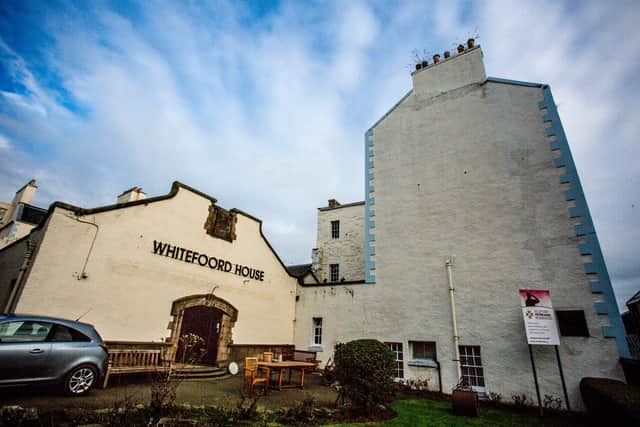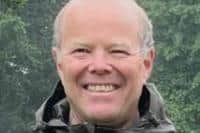We provide a safety net for veterans in need - Martin Nadin
Former sailors and soldiers were provided with accommodation and meals in exchange for their labour. Two Seaforth Highlanders officers, Charles Pelham-Burn and Chilton Addison-Smith, having witnessed the squalor in which discharged sailors and soldiers were living in Edinburgh’s Grassmarket, were instrumental in leading the fundraising campaign that led to the formation of the charity.
Now in its 113th year, Scotland’s oldest military charity has evolved to become Scottish Veterans’ Residences (SVR), a charitable Housing Association, and a registered social landlord.
Advertisement
Hide AdAdvertisement
Hide AdThe charity remains true to its original purpose of providing safe and warm accommodation to veterans in need, but rather than requiring them to work for their board and lodging, now provides support and activities to assist veterans to rediscover the confidence and skills they need to live as independently as they are able. So after 113 years, why does SVR continue to exist, and why is it still needed?


Veterans tend to be proud and resilient individuals, the vast majority of whom do extremely well post-service, bringing skills, energy, and adaptability into civilian life and the workplace.
During their service, military personnel do some extraordinary things, but some of these will be extremely unpleasant and add to the burden of adverse life events to which we are all exposed.
In my experience, an individual Veteran’s response to adverse events varies. The significant majority are able to come to terms with what they have experienced. They can move on without detriment to their wellbeing. Others, however, bury events deep into their subconscious, where they remain, until circumstances, or another event, brings them back to the fore.
It is when those adverse experiences resurface and become intrusive and persistent, that the Veteran can struggle. It is then that the Veteran’s pride and resilience can be obstacles rather than strengths.


Trained to be self-reliant, to be proud of what they are and what they have done, some veterans are loath to seek help. For them, to do so would be an admission of failure and weakness and so begins a downward spiral that can lead to unemployment, addiction, physical and mental illness, and financial difficulty. In severe cases the Veteran finds themself homeless, or at risk of homelessness.
It is in these and other circumstances SVR acts as a safety net for veterans in need. It has three dedicated residences: Whitefoord House; Rosendael in Broughty Ferry, Dundee; and our newest residence, purpose-built in 2014, Bellrock Close, in Cranhill, Glasgow. In total, SVR has 129 en-suite rooms and 30 self-contained flats, which provide environments that are sensitive to the social and cultural needs of veterans.
SVR’s supported housing services focus on relevant National Care Standards. Each Veteran has a nominated member of our qualified support staff to assist them. They help veterans access appropriate health services; take up training and employment opportunities; develop social, occupancy, and tenancy skills; and maximise their personal income.
Advertisement
Hide AdAdvertisement
Hide AdWorking in co-operation with partners in the charitable and veterans sectors, we encourage veterans to take up recreational or sporting activities. We provide hardship grants, addiction rehabilitation, and fund two on-site therapeutic counsellors to assist with mental wellbeing.
SVR provides places of safety and security for veterans; somewhere in which appropriate support and activities are available. We give them the time, space and encouragement they need to engage with and address their issues. This is key for veterans to regain their confidence to be able to live independently, where possible. This is encapsulated in SVR’s vision: “All veterans living as independently as they are able, in a place they are proud to call home.”
I sincerely hope that the veterans we support are proud once again to be living in their own accommodation, or in our residences.
Martin Nadin is a Veteran with 39 years’ service in the British Army. He has been Chief Executive of SVR since 2018.
Comments
Want to join the conversation? Please or to comment on this article.